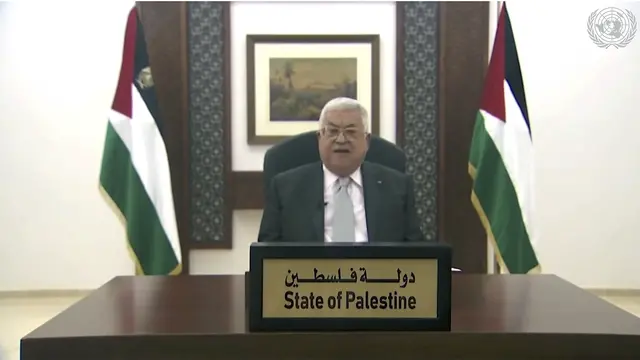Japan's top government spokesman left the door open on Wednesday to a possible summit between Prime Minister Shinzo Abe and Kim Jong Un, leader of the Democratic People's Republic of Korea (DPRK) to discuss the matter of Japanese citizens kidnapped by Pyongyang's agents decades ago.
Abe, who has made the abductees issue a keystone of his political career, will meet US President Donald Trump next month in Washington ahead of a proposed summit between the US leader and Pyongyang's Kim, which would follow a planned April meeting between Kim and South Korean President Moon Jae-in.
It is important to harmonize policies closely among Japan, the United States and South Korea ahead of the inter-Korean summit and the US-DPRK summit, Chief Cabinet Secretary Yoshihide Suga told a regular news conference.
Japanese Chief Cabinet Secretary Yoshihide Suga speaks at a press conference in Tokyo, Nov. 22, 2017.
"After that, while liaising closing among the three countries, we will address how to comprehensively resolve the nuclear, missile and abduction issues. Amid that, we want to consider what would be most effective and address the issues from that perspective," Suga added.
On Tuesday, a government source said the administration was considering seeking an Abe-Kim meeting. He declined to be identified because he's not authorized to speak to media.
Abe, 63, has said he would not rest until all 13 of the people the DPRK admitted to kidnapping have returned and divulges information about the others that Japan suspects were taken to train as DPRK spies.
But progress has largely stalled since 2002, when five of the 13 returned home. Pyongyang said the other eight were dead.
A ruling coalition lawmaker said that it was too early to plan for two-way talks with Pyongyang on the kidnappings.
The order is an inter-Korean summit, followed by a US-DPRK summit, said the lawmaker, who is well-versed in diplomatic affairs. "We have to see how they go first."
Speculation about an Abe-Kim summit emerges periodically, especially when his ratings are soggy.
Then-premier Junichiro Koizumi, got a popularity boost after his 2002 visit to Pyongyang and in 2004 when he brought back five children of abductees.
Abe is facing perhaps the worst crisis since taking office as doubts swirl over a suspected cronyism scandal centered on the discounted sale of state-owned land to a school with ties to his wife. He has denied wrongdoing either by himself or his spouse.
(REUTERS)
 简体中文
简体中文

